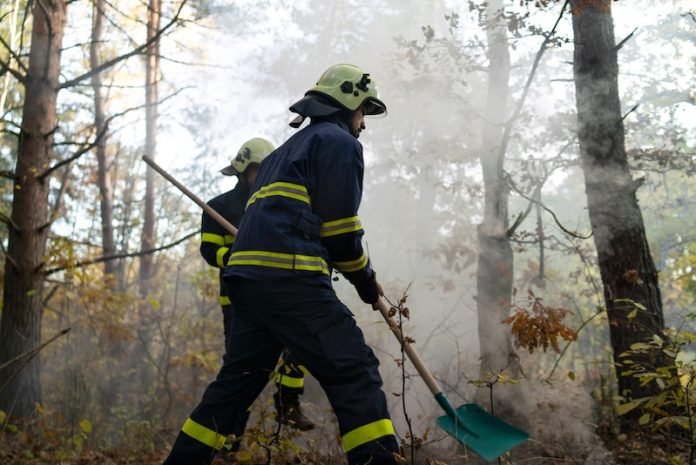
Scientists from the University of New Mexico wanted to know how breathing in wildfire smoke affects our brains.
They carried out an experiment with rodents to simulate the kind of smoke exposure people might experience during wildfires.
It’s already known that smoke from fires can mess with our lungs and overall well-being. Still, no one really knew how it could be affecting our heads.
The Surprising Result
What they found might make you think twice about going outside the next time a wildfire burns nearby. Breathing in wildfire smoke seemed to cause lasting problems in the brain for a month or more.
These problems affected the rodents’ ability to learn and remember things. But the big shock was how long the effects lasted: nearly a month. That’s a lot longer than anyone had expected.
Even though the rodents’ bodies seemed to adjust to the smoke after two weeks, their brain activity didn’t go back to normal.
That’s concerning because our brain controls just about everything we do, from learning new skills to handling our emotions.
When something messes with our brains, it can lead to all kinds of trouble, such as dementia or mental health issues like anxiety and depression.
Why Should We Care?
Given how often wildfires are happening these days, a lot of people are at risk of being exposed to this kind of smoke. Wildfires have become more frequent and intense due to climate change.
In the U.S., millions of acres burn every year, from California to Alaska. In 2020 alone, wildfires burned more than 10 million acres in the United States, making it the largest wildfire season recorded in modern history.
The smoke from these fires doesn’t just affect the areas where the fire is; it can travel hundreds of miles, impacting air quality and health in far-off places.
If you’re someone who lives near a place that has wildfires, or if you’re a firefighter, this research is crucial.
Even if you’re just passing through an area with a wildfire, you might be at risk of these long-lasting brain issues. According to the research, staying inside during smoky times is your best bet.
Your home can offer some protection against the smoke, especially if it’s well-insulated.
And if you do need to go out, wearing an N-95 mask can help keep those harmful particles out of your lungs and bloodstream—and hopefully, out of your brain.
This study opens the door for more research into how exactly wildfire smoke affects the brain and what we can do to protect ourselves.
This is particularly important for people who are already at risk for brain-related health issues. There’s also a need for communities to get better prepared for dealing with wildfires.
People should know what to do to protect themselves and their families when fires break out, and they need to have the resources to do it.
To Sum It Up
We know that wildfires are bad for the environment and our health, but this research shows they can also have long-term effects on our brains.
This makes it even more crucial for communities to prepare for wildfires and for individuals to take precautions when smoke fills the air. After all, protecting your lungs is essential, but so is safeguarding your brain.
The study was published in the Journal of Neuroinflammation.
Follow us on Twitter for more articles about this topic.
Copyright © 2023 Knowridge Science Report. All rights reserved.



